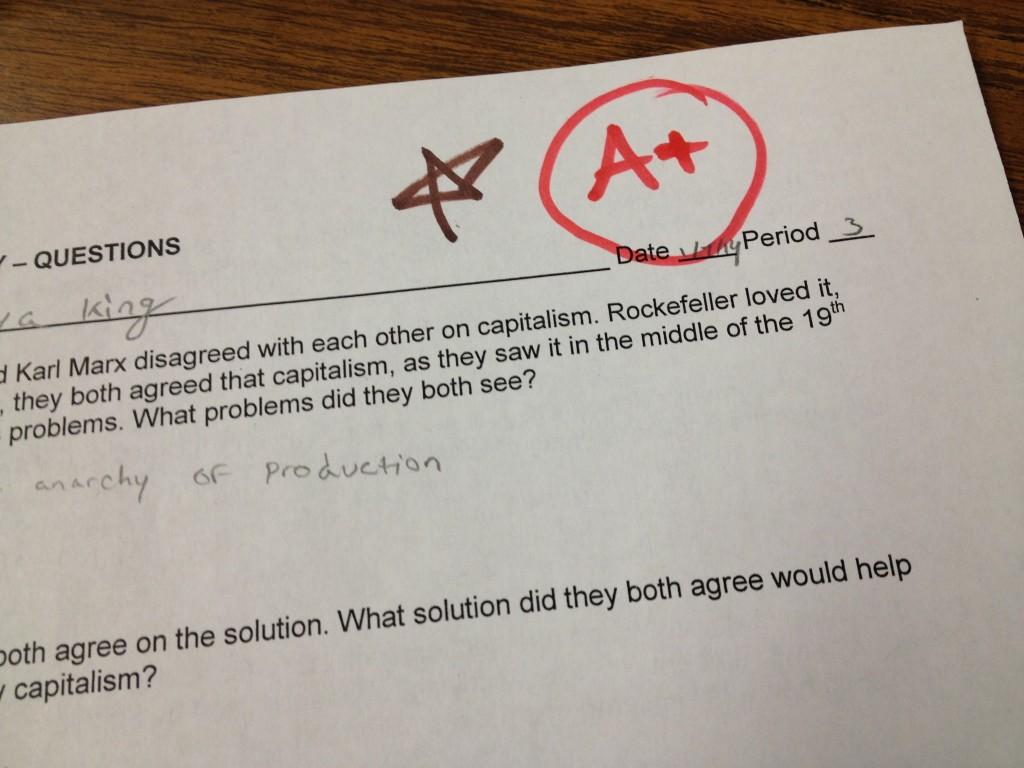Students Question Grades
Grades.
One word that can send students into a fit of despair and worry or boost their level of confidence.
For sophomore Elle Budd, that word is perhaps the most important of her academic career at Lincoln. “My mom is going to take me out of Lincoln and put me in Jefferson next year if my grades don’t get better,” Budd said. “I [dropped] Mandarin and IB Chem [this] semester, so [my grades will] get better. Hopefully I’ll be able to stay next year.”
Many students often feel that their parents pressure them into choosing the “right” classes, getting into the “right” colleges, and earning the best grades. “[My parents] used to [care about my grades] but not anymore because they lowered their standard,” said a sophomore who asked not be identified. “They make me not want to show them my grades.” High school is often considered to be a time when students explore their choices to make better informed decisions about later on in life. However, some students feel that their parents make their choices for them. “[My parents] look at my decisions and make changes to [my schedule],” the sophomore said. “They decide which class would be easier for me.”
Most students have learned about peer pressure in the anti-bullying campaigns that are part of the curriculum. However, some don’t realize that peer pressure can actually affect their grades. “Sometimes I feel like I can’t be honest about my grades with peers,” Mai O’Neill, sophomore, said, “because, although they are fine and I am happy with them, they are not straight A’s, and I feel like that is the standard.”
College also affects what classes students want to take as high schoolers. People often worry about the “right college”, but students are starting to question what the “right college” should include. “Many things,” O’Neill said, “but generally: location, extracurriculars, history department, campus environment/general vibe, and, of course, the name recognition factor, in no particular order.” However, other students have different ideas about good colleges. “[They need] high expectations [and a] low admission rate,” said the anonymous sophomore.
In the pamphlets students receive about college information, the college will often say that they want a student who has good grades and is also a well-rounded person. But what does a well-rounded person mean to everyone? For one person it may mean a 4.0 and a 2350 SAT score, while for another it means a 3.5, a 2000 SAT, and being involved in a couple clubs. “[Colleges look for a] high G.P.A., [a] high SAT score, [and] several subject tests,” Evangeline Liu, sophomore, said.
Students are now questioning the amount of stress placed upon them and the need for colleges to look so heavily at grades. “[I think colleges require the right amount of stress],” Rona Wang, sophomore, said. “I mean Ivies are competitive, of course, but they’re Ivies for a reason.” Many students also think that colleges should not emphasize grades so much. “It depends,” Riley Alfaro, freshman, said. “I think that grades for whatever you want to major in should matter more than your other grades.” However, other students think that they’re just as competitive as they should be. “I think [they should focus on grades],” the sophomore said, “because academic achievement is important.”
“Your life is your life,” Maya King, sophomore, said. “It’s up to you to decide what you want to do.”

